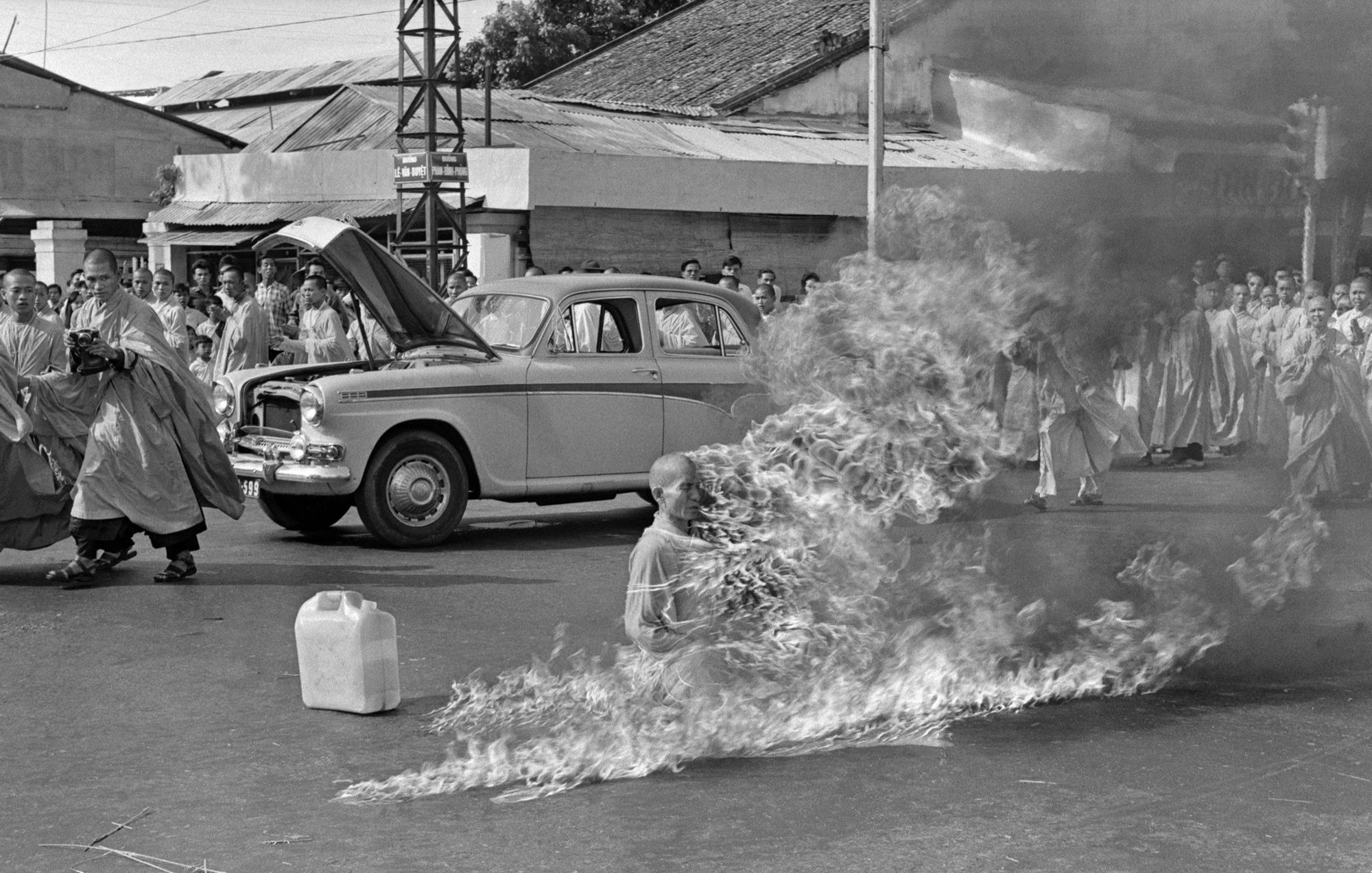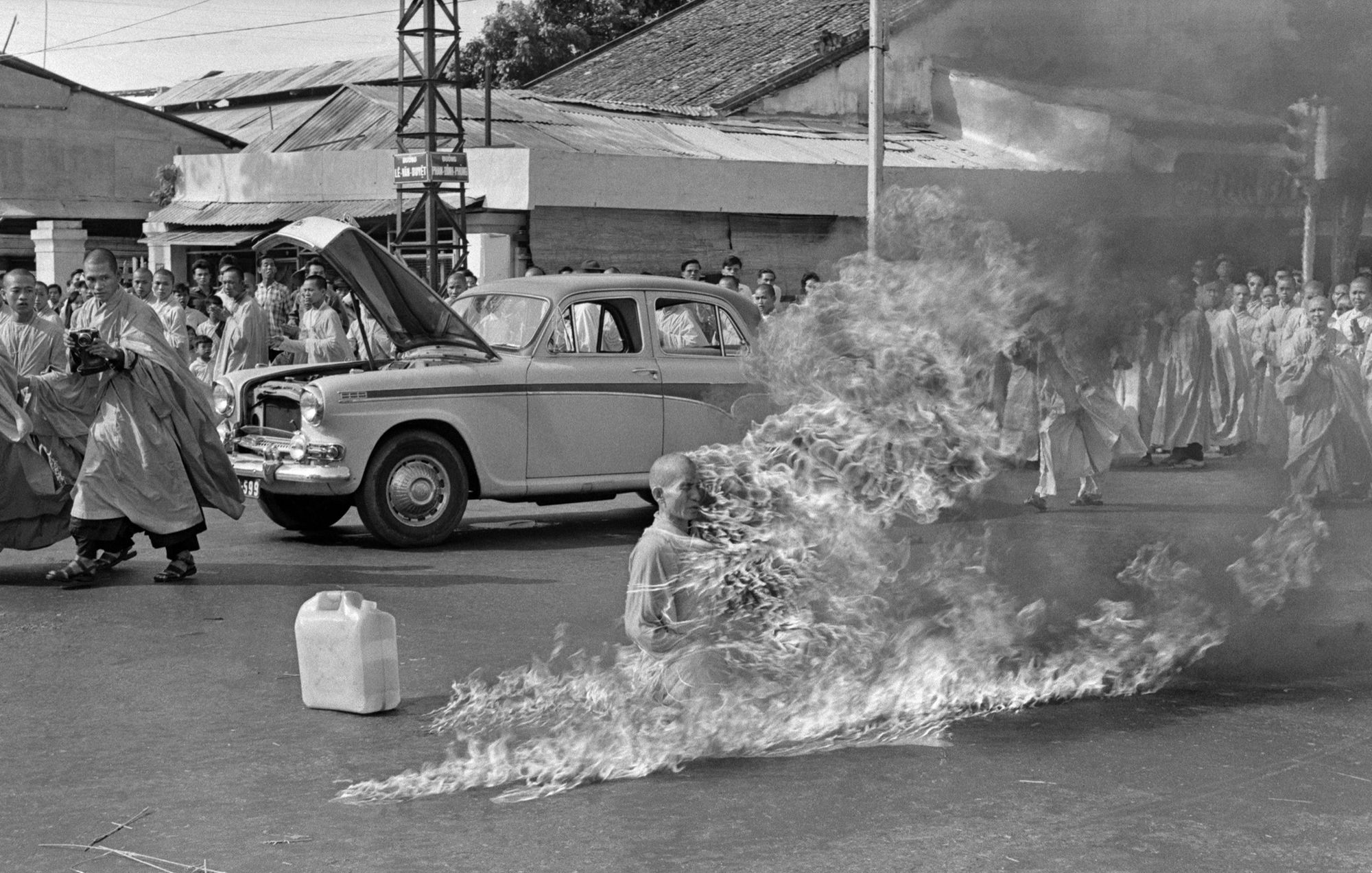The Burning Monk
On the 11th June 1963 Vietnamese monk Thích Quảng Đức burned himself to death in protest against religious inequality.

On the 11th June 1963 Vietnamese monk Thích Quảng Đức burned himself to death in protest against religious inequality. He’d be forever known as The Burning Monk for this act of selfless sacrifice.
This is as dreadful and complete a demonstration of the power of the mind as I’ve ever heard or seen.
The photo below expresses more than I can; a five-gallon petrol can sitting to his right evidencing the means of his self-immolation.

David Halberstam captured in words what must have been devastating to witness and can barely be expressed with black lines on a white page.
As he burned he never moved a muscle, never uttered a sound, his outward composure in sharp contrast to the wailing people around him
“As he burned he never moved a muscle, never uttered a sound” - I just find that line in particular so powerful. And more than any motivational speaker or internet guru it cuts right to the heart of the power of the mind. If one can sit calmly while burning to death then one can endure any lesser suffering.
Can you imagine? Writing your final letter to the world. The careful preparation on the day by bringing a meditation cushion and sourcing the petrol. The calmness of sitting down, following the breath, finding the centre. Then the striking of the match in final and irreversible commitment. And even while burning and dying, skin blackening and body shrivelling, never moving, or screaming, or faltering. Such incredible control of the mind.
Even to take a simpler example. If I think about pulling off a fingernail or pulling out a tooth - something that would be painful but certainly not fatal - I cannot fathom being able to do so without screaming or flinching. But I can ease into an icy shower with calm, so I have some idea (some orders of magnitude below) of what that mind control feels like. So there is a scale. We’re all somewhere on that scale. And like anything, mastery comes from practice. Mastery of the mind can only come from practice too - meditation, mindfulness, exposure to controlled stresses.
Please don’t think I’m sensationalising suicide. But I am drawn to the finality of this lesson. That a person can have such mastery over mind that the pain and fear of death is pushed aside as I might push aside a beetle from my path.
So I think I’ll take from this that my bad day at work, or messy house, or bickering kids, is utterly inconsequential. And that any challenge in my life, big or small, can be met and overcome with the power of my mind. That power that Thích Quảng Đức demonstrated is within all of us.